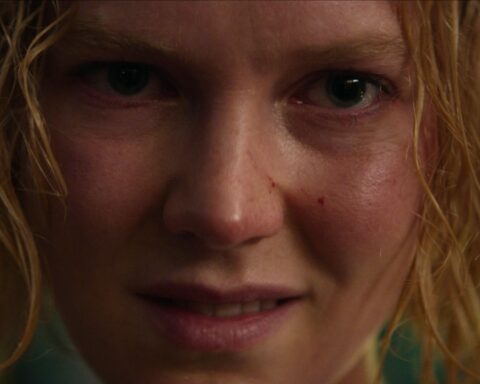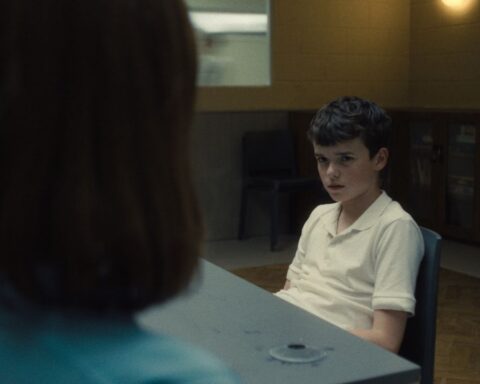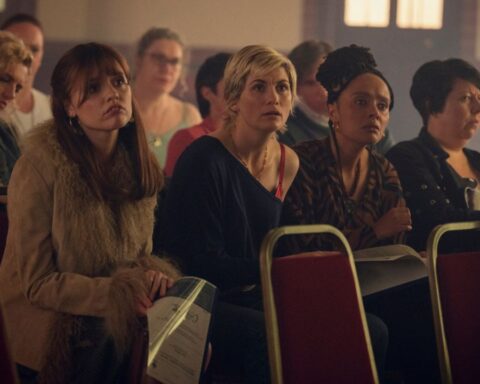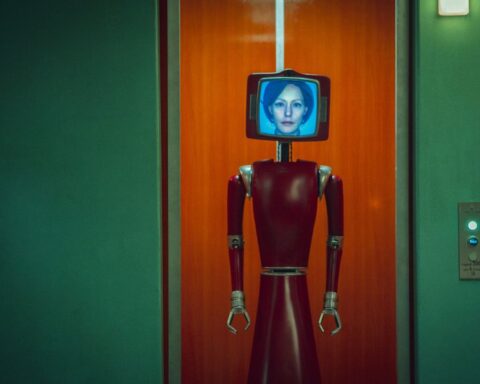Following the second season finale of The Gilded Age, we asked our learned correspondent, Dr. Matthew Yap, to pen some thoughts on how he felt the series progressed. You can read Matthew’s initial reactions to Season 2 of The Gilded Age here.
Watching the Season 2 finale of The Gilded Age season, I couldn’t help imagining Aunt Agnes’ face if she knew that Christine Baranski, who plays her, was recently at the Metropolitan Opera with the rest of the show’s cast. This final episode brought the season-long “opera war arc” between the Met and the Academy of Music to its climax. The fact that the Met celebrated its 140th birthday this year proves that the Russells chose the winning horse.
Meanwhile, the Academy of Music, which Mrs. Astor believed was eternal, is long gone, along with most of the old money families who championed it. It’s no exaggeration to say that this season was defined by the opera war that bitterly divided New York’s high society, tested allegiances, shifted power, and convinced the old guard that the cool table to sit at is the one the nouveau rich kids own.
With her English Duke sitting in her box, Mrs. Russell now reigns supreme over high society. It’s everything she’s ever wanted. But how did she entice the handsome young Duke to join her when she and Mrs. Astor had already thrown money at him? It’s hinted that the price was child sacrifice – or at least that’s how Gladys Russell will probably see it!
Keeping Up With the Russells

One thing The Gilded Age did well this season was weave history with narrative. I enjoyed watching the characters live through real events as everyday experiences. As I predicted, the clash between George Russell and the labour unions proved an explosive tinderbox. Maybe it’s Stockholm Syndrome, but although Mr. Russell had no qualms about crushing his workers’ basic rights, I still root for the guy.
The writers did wonderful things with Peggy Scott’s storyline this season. Taking her to Tuskegee to report on Alabama’s newest Black school allowed The Gilded Age to stretch beyond New York. Anyone who’s heard of the Tuskegee Human Experiments and its dark history for Black America would’ve felt a chill when Peggy’s mother begged her to understand that the moment she crossed the Mason-Dixon line into the South, she would cease to be human.
I also enjoyed Larry Russell’s discovery that the engineer of the Brooklyn Bridge was a woman. Larry shares his father’s progressive views on women, and he pushes for Emily Roebling to have the credit she deserves as the brilliant mind behind the iconic bridge. It was, however, sad and sobering to hear Mrs. Roebling urging Larry to keep her role secret because people would be too frightened to cross the bridge if they knew a woman designed it.
Clueless Couplings

Emily Roebling also proved to be a good palate cleanser from Larry’s pointless storyline with Susan Blane. He and the very attractive widow squandered screen time with their hormonal romance, only for Mrs. Blane to be abruptly booted off the show. It’s not just them, though. The other romantic pairings were also painfully obvious. A single glance between characters is all it takes to telegraph that the writers’ room, like cunning aunts, intends to matchmake them.
Take Aunt Ada and Reverend Forte. Yes, they make a cute couple, but they paired up so fast it gave me whiplash. After which, just like that, the good reverend (played so tenderly by Robert Sean Leonard) bites it. And then, almost immediately, in a complete deux ex machina, he manages to save the recently doomed van Rhijns from beyond the grave.
The van Rhijn Conundrum

The van Rhijn household becoming destitute was the storyline I was most looking forward to, and I fully expected it to be a big part of Season 3. It would’ve been gratifying to see how Aunt Agnes, jealously wedded to her old money status, would cope with losing her fortune and position. Watching impeccable Agnes van Rhijn getting real with manual labour would’ve been great fun.
Instead, in just a single episode, salvation comes as old money inherits “new” old money and is saved. A storyline with so much potential and pathos is cut before it even starts. Reversals of fortune make for dramatic stories that push characters. Shakespeare proves that. But it’s clear The Gilded Age writers prefer quick resolutions and tidy endings instead of allowing characters to experience anything for too long.
Still, I can’t complain. Season 2 was an improvement, mainly thanks to the new characters who, like the new money families the Russells represent, help liven things up. Now, if only the writers could commit to their storylines rather than jumping ship like Mrs Russell’s feckless duke who gets passed around like an old boot.









Follow Us